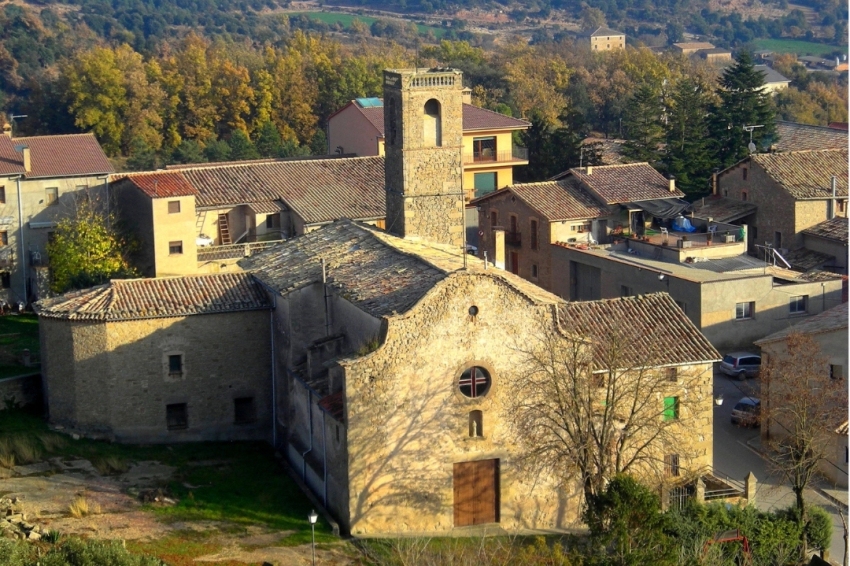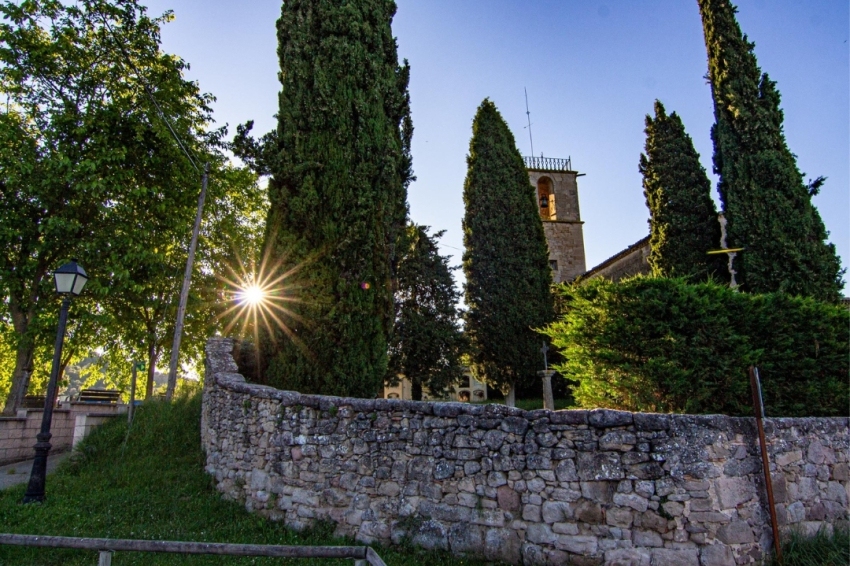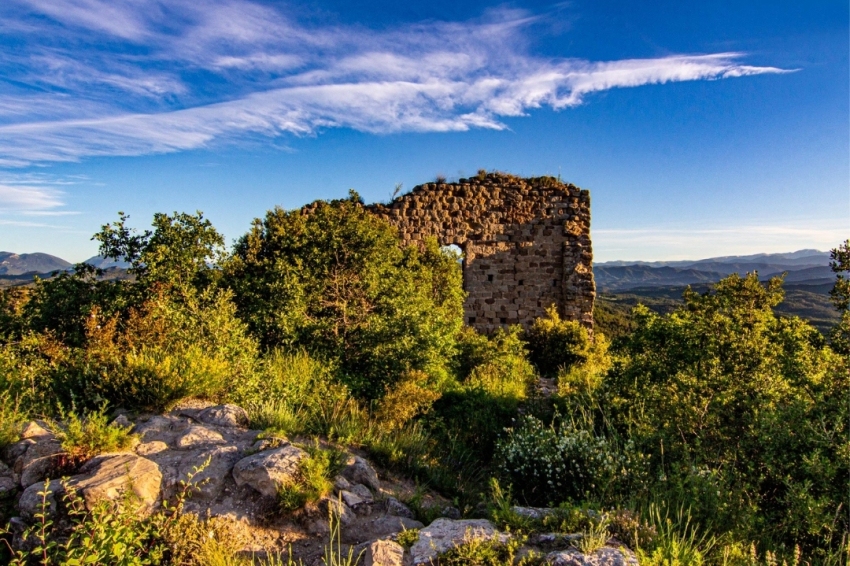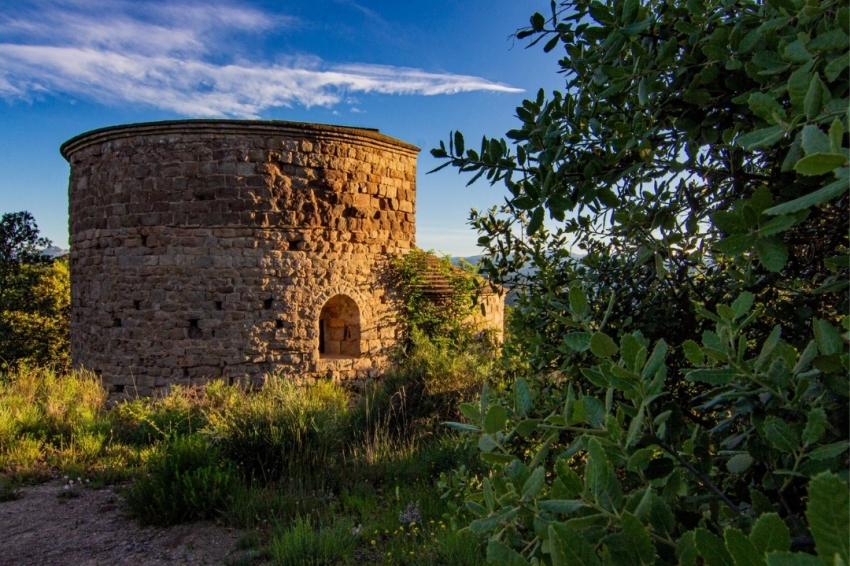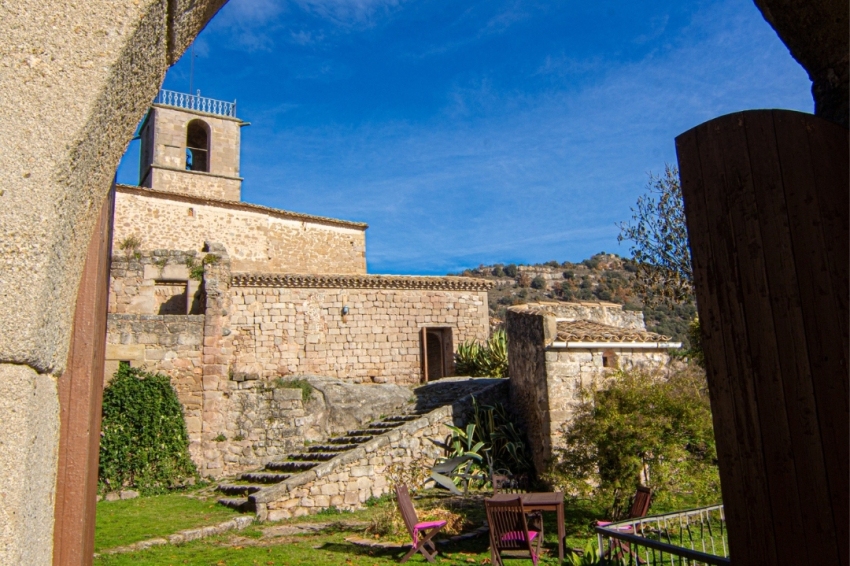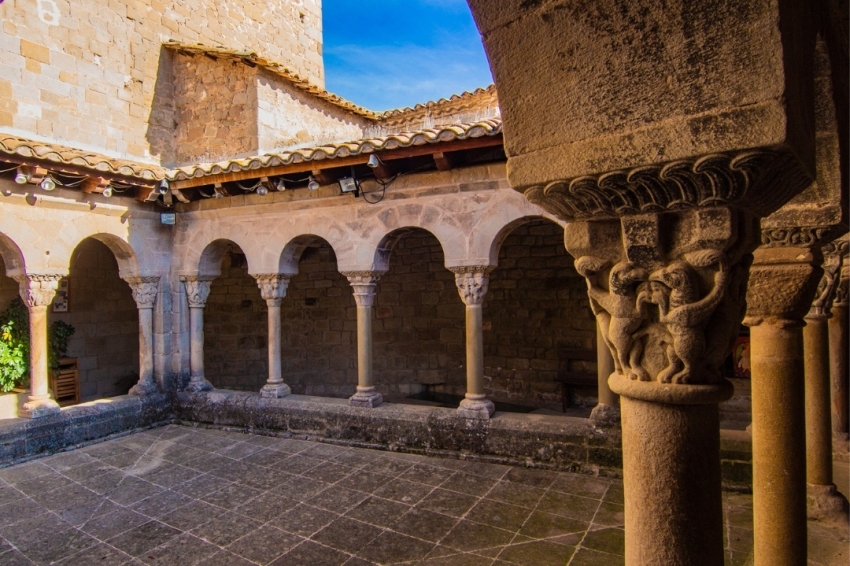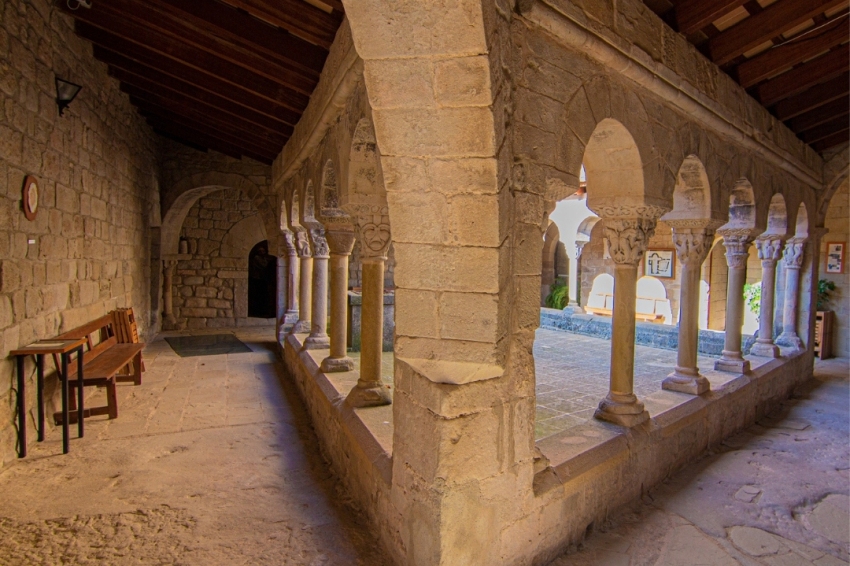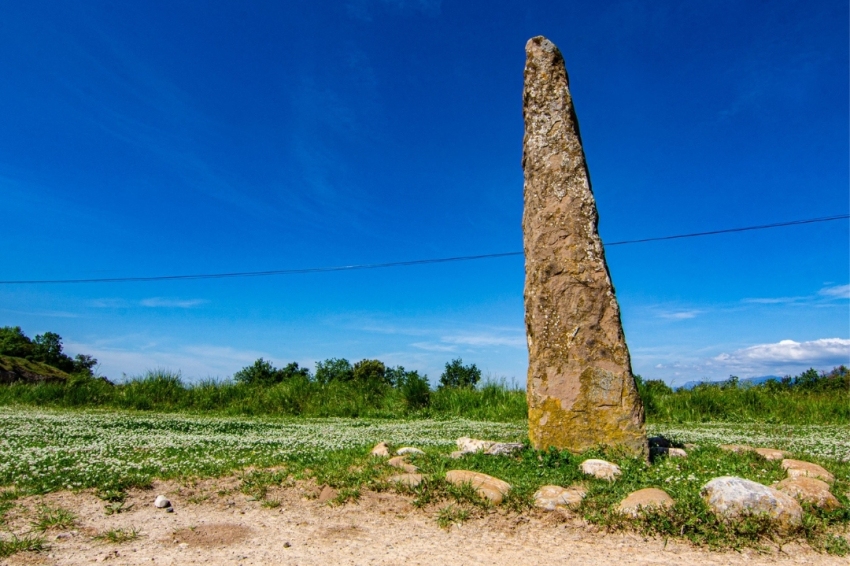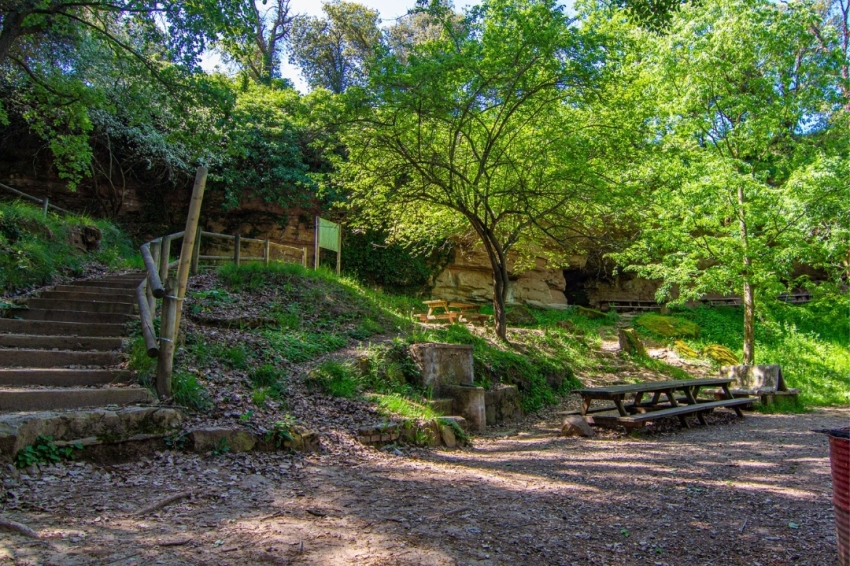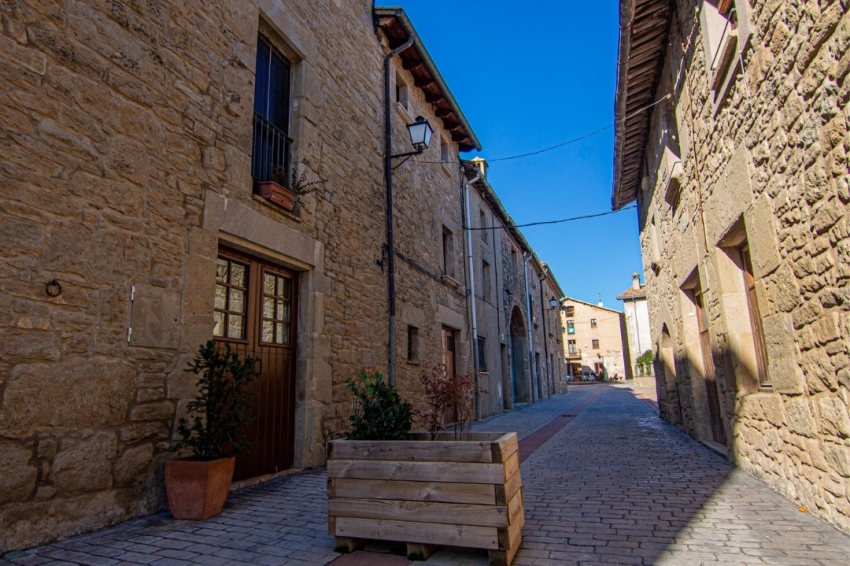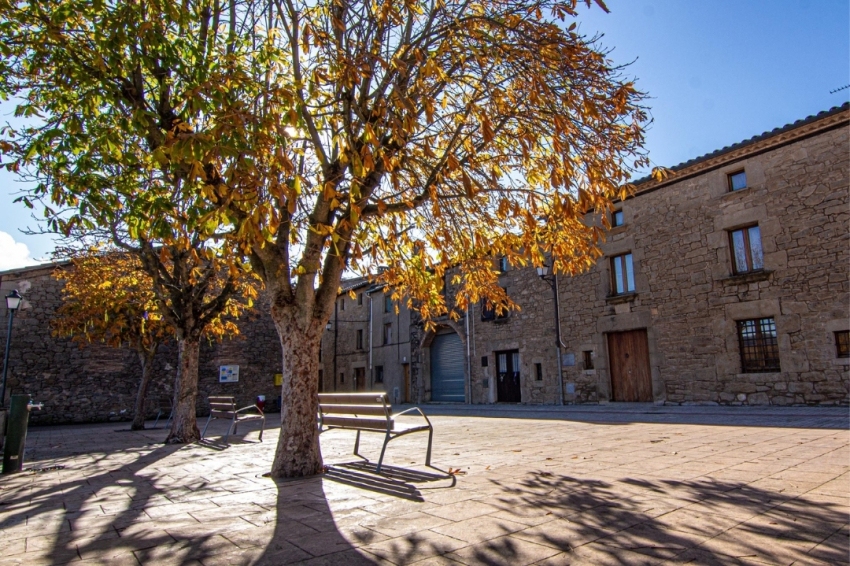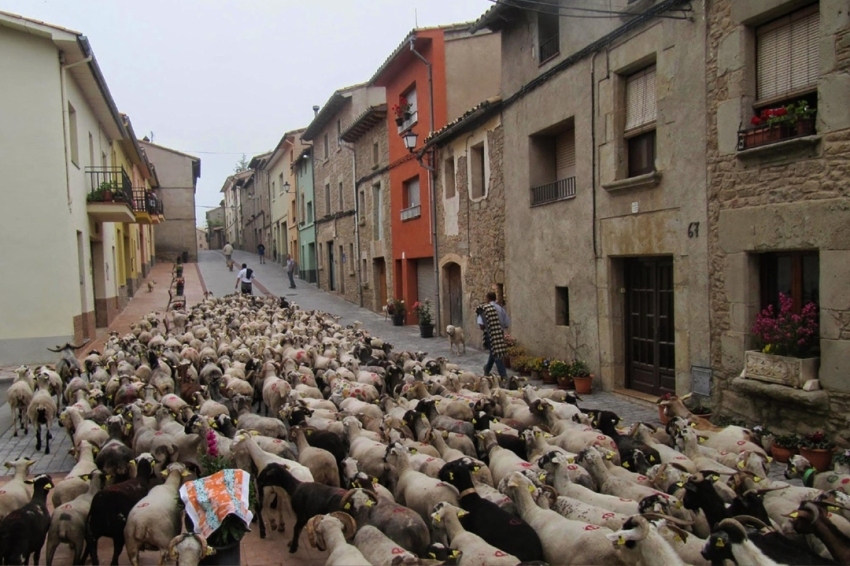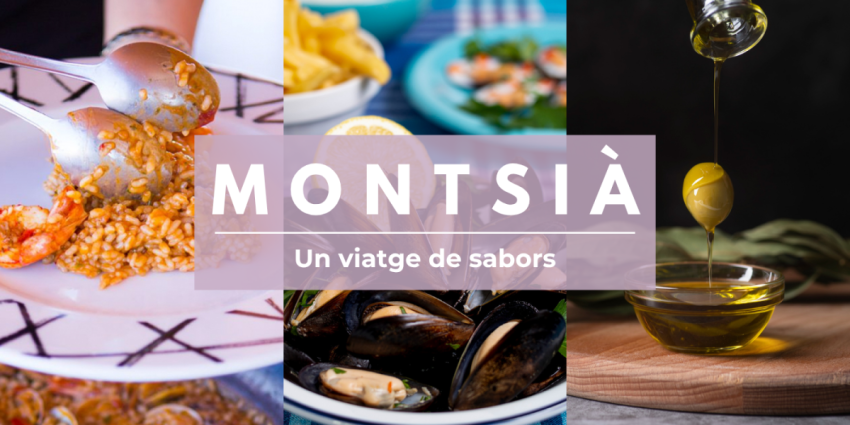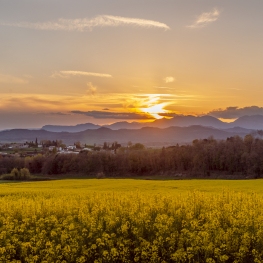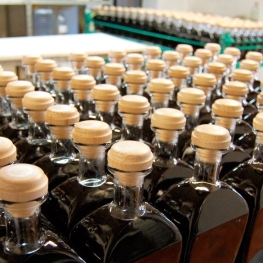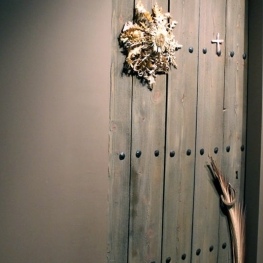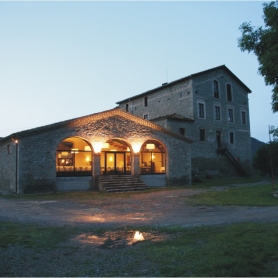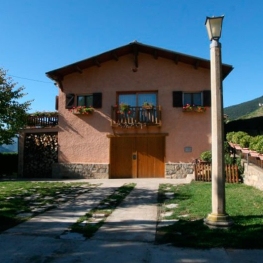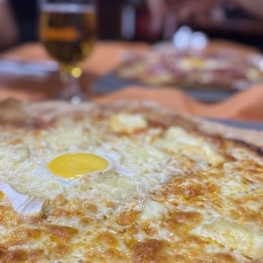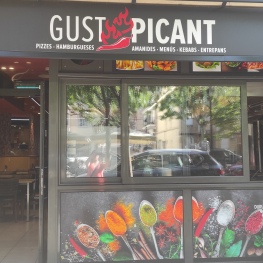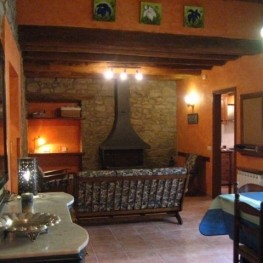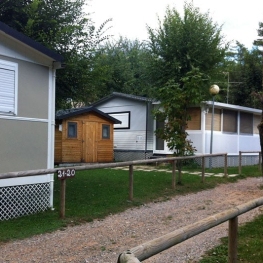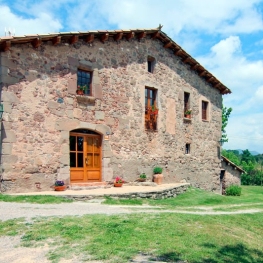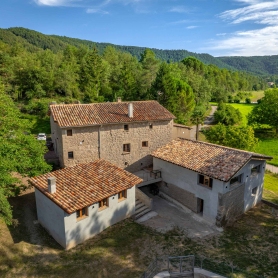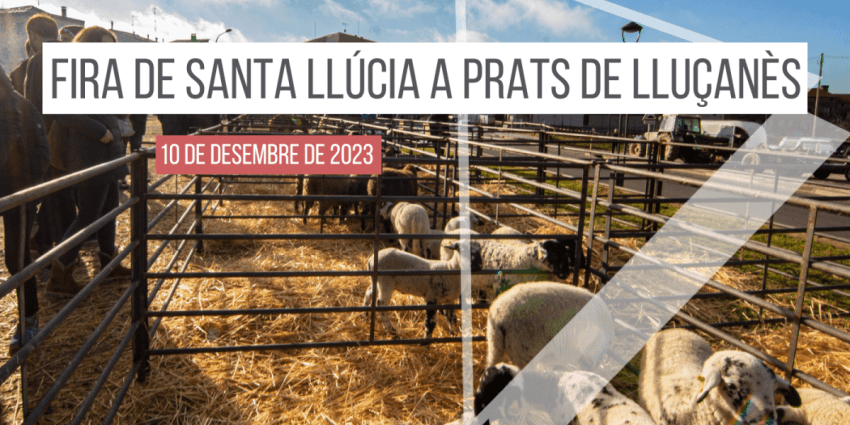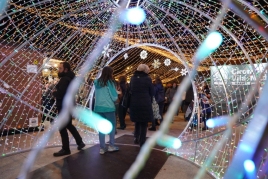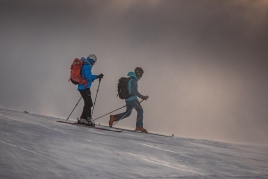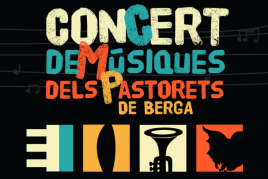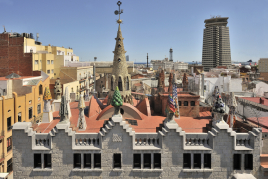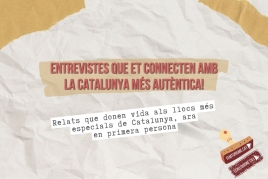Lluçà
Lluçà is located in the central-west of Lluçanès, with an area of 53.5 km2. It is made up of two nuclei: the scattered nucleus of Lluçà and the town of Santa Eulàlia de Puig-oriol.
Lluçà
The center of Lluçà is made up of different scattered farmhouses and a historic center with one of the most important medieval and Romanesque heritage sites in the region:
Lluçà Monastery
Former Augustinian canonical, it constitutes a medieval heritage complex of the first order within the Catalan Romanesque. It is made up of the church of Santa Maria (with the apse facing east), the canonical dependencies, the Gothic paintings from the 14th century or the medieval tool of the portal. The 12th century cloister stands out, which preserves twenty original capitals and abacuses decorated with vegetal and bestiary themes, with rampant lions, eagles, griffins, birds... Inside the church we find a copy of the front of the altar, from Italo-Byzantine origin, and a copy of the altar cross of Christ Majesty (the original pieces are preserved in the Episcopal Museum of Vic ).
Lluçà Castle
Perched on a hill near the center of Lluçà, it appears documented in the year 905 when the bishop of Vic, Idalguer, went to Lluçà to consecrate the church of Santa Maria. The eminent lords of the castle were the counts of Barcelona, and, as such, they received several oaths of allegiance from the county vicars. The first known member was Sunifred de Lluçà, who had his will drawn up in 988. With Ramon de Lluçà the family name was interrupted, since only one heiress survived: Elisenda de Lluçà, who married the lord of the Portella castle, Bernat de Saportella, with which the conflicts began over the control of Lluçà castle. At the end of the 15th century the castle was destroyed during the Remences civil war.
Sant Vicenç del Castell
This is the old private chapel of the Lluçà castle, a Romanesque church from the 11th century, with a circular plan. It is one of the best and rare models of round Romanesque church in Catalonia.
Saint Eulalia de Puig-oriol
The town of Santa Eulalia de Puig-oriol is located on the ridge that separates the valley of the Gavarresa stream from the valley of the Lluçanès stream. It is structured around a main street that crosses the center from south to north, Calle Mayor, built following the layout of the Marina livestock route that comes from Penedès and heads to Cerdanya, one of the most important transhumance routes in the region. country. The houses we found were built between the 18th and 20th centuries on both sides of the street; Narrow, with a ground floor, first floor and attic, they preserve the inscriptions and dates engraved on the lintels of the doorways and windows.
Also notable is the popular baroque style parish church, located at the northern end of the town. It has a single nave, three small side chapels on each side and a presbytery. The curvilinear façade has a large portal framed with molded stone jambs and lintel with the inscribed date of 1855 and an interspersed cross. Above the portal there is a niche with an image of Saint Eulalia, the patron saint, and above it there is a rose window.
The Lluçà Transhumance Studies and Resources Center is a space for research and academic studies, in which educational activities and actions for rural development and the promotion of local commerce are promoted. It works closely with the Camí Ganadero de Marina association for the protection of the roads, the heritage revitalization of a route of approximately two hundred kilometers between the summer pastures of Cerdanya and the winter pastures of Penedès, the oldest documented livestock path in Catalonia.
The DRETA STONE
Located at the foot of the BV-4341 highway, it is an imposing landmark on the western cattle path, 2.23 meters high and prismatic in shape, which marked and indicated the orientation of the ravine and the passage of the transhumant herds. The summer They headed to the high grass areas. Traditionally, the Cinquagesma gathering is celebrated around the Right Stone, on the day of the 2nd Easter.
It has an associated legend that says: "The medieval bridge that serves as a footbridge of the Merlès stream, between Sant Martí and Santa Maria, says that it was made by the devil carrying the stones near the castle of Lluçà. When he carried the last stone it was already almost at dawn, and when he was going through the Casanova del Grau plan, a rooster crowed and, as was mandatory, when the rooster crowed the devil needed to return to hell even if he had not finished the gala work. All the devil's prices were of one only one night, and if during that time he could not finish the work, the work remained unfinished forever. With the fear that the demon received when he heard the rooster crow, he dropped the stone and it remained stuck in the ground, and from that moment on day they have always been called the Right Stone" (TORRES, Jordi (2002). Paths with memory. Legends, sayings and facts from the edge of the road. Furrow).
Fountain and Balma de las Cuevas
La Font y Balma de las Cuevas is a cozy and shady space located around an elongated cave. This is a picnic area with 4 barbecues. The picnic tables are distributed at different heights: inside the cave, in the grill area and on the esplanade.
Throughout the cave there are different points where water comes out. The fountain is located outside, under the cave, and has a metal spring with a municipal water tap.
Access: On the C-62 road towards Berga, you must take a detour to the right at kilometer 17,400 and continue along a forest track for 150 meters.
Nearby routes
See all routes »What to do
Ratafia Bosch
Sant Quirze de Besora (a 12.6 Km)Come visit Ratafia Bosch and live the experience of discovering its history…
Centre d’Interpretació de la Bruixeria
Sant Feliu Sasserra (a 14.6 Km)The Bruixeria de Sant Feliu Sasserra Interpretation Center invites visitors to get…
Where to eat
Restaurant Dachs
Les Llosses (a 9.8 Km)Restaurant Dachs offers versatile spaces for celebrations in Les Llosses, with rustic…
Bar Restaurant Xato
Gironella (a 16.5 Km)Order pizzas, burgers, tapas... at Xato Bar-Restaurant and we'll deliver them to…
Restaurant Gust Picant
Berga (a 18.9 Km)At Gust Picant, you can enjoy affordable menus with a wide variety…
Where to sleep
Càmping Puigcercós
Borredà (a 7 Km)The campsite stands out for its quiet atmosphere and familiar character, has…
Cal Fargas Turisme Rural
Santa Maria de Merlès (a 11.3 Km)At Cal Fargas, comfortable rooms await you in a house surrounded by…
Events
Experiences
Concert of music from the Pastorets - 125 years of 'Els Pastorets…
Els Pastorets de Berga (Berga) (a 19.4 Km)

